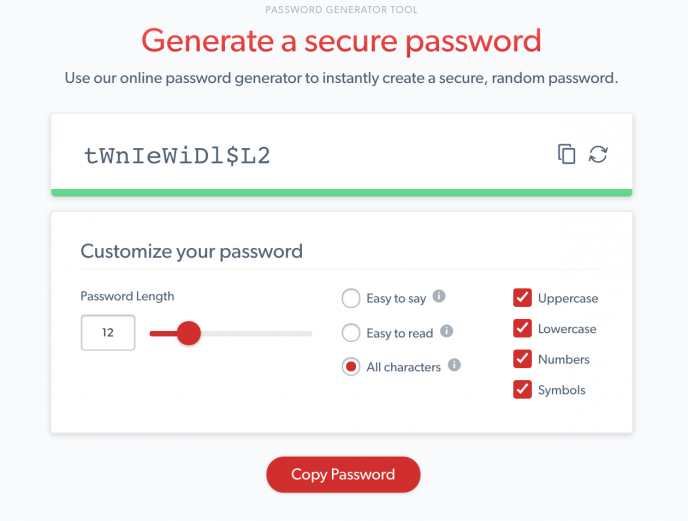If you don’t have a secure website, you’re surely driving away traffic from new visitors that you could turn into paying customers. Recent studies show that there’s a security attack online every 39 seconds. With such high frequency, you can’t afford to neglect your site’s security.
For any business owner, their website is the hub of all information where users can interact with their content and connect to their brand. A secure website ensures that your visitors stay on the page until they’re ready to move down the conversion funnel and invest in your company.
So, if you don’t take the proper steps to ensure that your visitors’ information is safe, your business won’t be able to grow nearly as much as it potentially could. Let’s dive into four steps you can take to improve our website security and put your visitors at ease.
Choose a Solid Web Host
Every website requires web hosting. With so many options available, you might feel overwhelmed about which one is right for you and your goals. A good place to start is with the hosting provider’s security protocol.
Web hosting normally comes with the option to select a shared plan. Although it may be cheaper, it doesn’t mean it’s the best choice for your business. Using a shared plan still runs security risks and can drive away customers.
To start with a solid security foundation, it’s best to choose an individual hosting plan that doesn’t require you to share servers with other websites. If a hacker breaks into any of those sites, they can also hack into yours.
Use HTTPS
When you visit a website, the URL bar tells you if it’s using HTTPs protocol or not. HTTPs, or Hypertext Transfer Protocol Secure, protects confidential data so user information stays safe. People expect a seamless, secure experience when visiting a website, and if yours can’t provide that type of security, then you won’t attract any traffic.
Using HTTPS ensures the following protections, according to Google:
Without HTTPS protocol, the possibilities are endless for hackers and those looking for personal information. It’s easier for them to access confidential content and destroy the integrity of your online business. One bad slip up with security could cost you tons of money and ruin your brand.
Setting up HTTPS is easy and doesn’t take much time. You need to obtain a security certificate that turns your HTTP into HTTPS and doesn’t scare visitors away.
Create Strong Passwords
This may sound like a no brainer, but not enough people take their password security seriously. Around eight percent of WordPress sites have been hacked because of a weak password. With tightened security in place, you can easily avoid a breach.
Using the same password over long periods and never changing makes you an easy target for hackers. Once they get ahold of one commonly used password, they can use it to hack any of your accounts and gain access to your private information.
Remember to constantly update your passwords. Refrain from using the same one for multiple accounts and instead create different ones for extra protection. Use a password generator to help you create difficult, strong passwords that are difficult to crack.
Run Regular Software Updates
Software relies on updates to ensure everything is working to the best of its ability and keeps your website secure. Failing to follow through with regular updates puts your website at risk and makes it more vulnerable to attacks.
Although many websites use bots to scan their webpages and detect suspicious activity, it simply isn’t enough to completely protect it. Using a website firewall ensures that security holes are fixed before bigger sources can get to them. It acts as a protective shield between you and an outside threat.
For WordPress users especially, installing a security plugin for your site is crucial. Whether you’re running a blog or an ecommerce store, you need to take all the steps necessary to ensure your website’s security. Otherwise, you’ll face setbacks that could cost you significantly.
Conclusion
As a website owner, it’s your responsibility to ensure that yours and your visitors’ data is safe. With all the breaches happening in recent years, it’s important to ensure that you’re taking all the steps necessary to create a comfortable experience for users. That way, you can convince them to keep coming back and invest in your brand. How will you improve your website security?
—
Syed Balkhi is an award-winning entrepreneur and online marketing expert. He is the co-founder of OptinMonster, WPBeginner, MonsterInsights, and WPForms.

